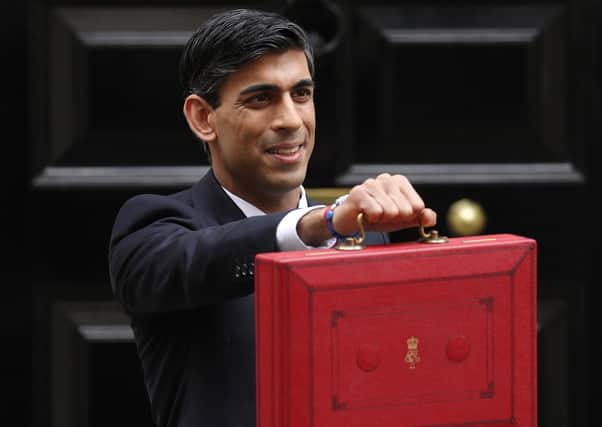How UK Budget did not put an end to Tory austerity – Ian Swanson


The much-delayed announcement of the UK Government’s tax and spending plans for 2020/21 included £5 billion for an emergency response south of the border, with knock-on funding for Scotland and a promise the NHS will get “whatever extra resources it needs” to cope with the virus.
But what else was in the Budget – what does it tell us about Boris Johnson’s government and what will it mean for people?
Advertisement
Hide AdAdvertisement
Hide AdBefore coronavirus became the all-consuming concern it now is, the Budget was being billed as a major shift in direction, finally abandoning the Tories’ near decade-long policy of austerity and turning on the spending taps which George Osborne had made sure were tightly off.
Mr Sunak – just a few weeks in post after he was promoted to replace Sajid Javid when he was forced out by the Prime Minister – did indeed signal a near-doubling of public sector borrowing to fund investment.
But critics say that, despite the hype, the Budget does little to restore funding for public services, which is a key part of the day-to-day austerity people have had to suffer.
Labour leadership contender Sir Keir Starmer said the Budget was a confession that austerity was a political choice but with no attempt to tackle inequality or child poverty.
Advertisement
Hide AdAdvertisement
Hide AdCritics also say there is little to address the climate emergency, with £27 billion more for road building and fuel duty frozen for the tenth year on the trot. Greens accused the Tories of investing in the problem rather than the solution.
Critics argue that even the response to coronavirus is not enough. Statutory sick pay will now be available from day one instead of day five for those who are entitled to it, and businesses with fewer than 250 employees will have the cost of the first 14 days refunded by the government.
But the amount – £94.25 per week – is not being increased and there was no move to extend entitlement to those who do not currently qualify, meaning it is not available to many low-paid or gig economy workers or the self-employed.
It is also not clear what additional funding, if any, is being channelled to social care.
Advertisement
Hide AdAdvertisement
Hide AdOpposition politicians say the NHS is ill-prepared to deal with a crisis because it has been underfunded for the past decade.
Other highlights in last week’s Budget included raising the National Insurance threshold, ending the ‘tampon tax’ and scrapping VAT on digital publications.
The Chancellor’s measures are expected to mean £640 million in extra cash for Scotland. Some of that will have to go on coronavirus and some of it was already “baked in” to the Scottish Government’s budget, based on previous Tory commitments.
But there will be pressure to put some of the additional money into funding for local authorities who say they are still being left short, even after the SNP’s deal with the Greens handed them £95m more than the original Scottish budget proposals.
Advertisement
Hide AdAdvertisement
Hide AdOne way or another it seems the much-vaunted end to austerity may have stalled at policy level and failed to make its way down through extra cash for services that people rely on to make a real improvement to the lives of ordinary citizens, especially those with low incomes.
Comment Guidelines
National World encourages reader discussion on our stories. User feedback, insights and back-and-forth exchanges add a rich layer of context to reporting. Please review our Community Guidelines before commenting.